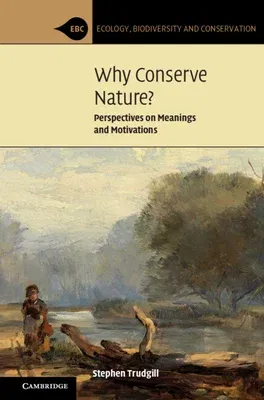Stephen Trudgill
(Author)Why Conserve Nature?: Perspectives on Meanings and MotivationsPaperback, 24 February 2022

Qty
1
Turbo
Ships in 2 - 3 days
Only 5 left
Free Delivery
Cash on Delivery
15 Days
Free Returns
Secure Checkout

Part of Series
Ecology, Biodiversity and Conservation
Print Length
400 pages
Language
English
Publisher
Cambridge University Press
Date Published
24 Feb 2022
ISBN-10
1108958575
ISBN-13
9781108958578
Description
Product Details
Author:
Book Format:
Paperback
Country of Origin:
GB
Date Published:
24 February 2022
Dimensions:
22.61 x
14.99 x
1.78 cm
Genre:
Ecology
ISBN-10:
1108958575
ISBN-13:
9781108958578
Language:
English
Location:
Cambridge
Pages:
400
Publisher:
Weight:
680.39 gm